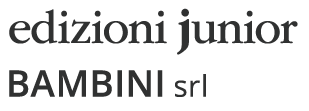Periodical N. 3 2017
A century of educational psychology in Italy
Carlo Trombetta
In this paper the beginnings of educational psychology in Italy are examinated. The paper outlines the cultural, political and social reasons of its noticeable development at the end ot the 19th century and at the beginning of the 20th century, as well as the causes of its subsequent decline, from the fascist period onwards.
I see myself in this way. Psychological lexicon and self representation in school age children
Gemma Marano, Anna Di Norcia, Anna Silvia Bombi, Eleonora Cannoni
Starting from the assumption that the ability to differentiate present self and future self is an aspect of self-awareness, probably related to the development of mentalization, this study explore links between psychological lexicon and how children represent themselves. Participants were115 third graders (74 M and 41 F) that were invited to draw themselves as they are in the present and as they aspect to be at eighteen years old. A subgroup (35 M and 14 F) provided also a written self-description. Data from written descriptions were analyzed to identify the frequency of six categories of psychological lexicon (Camaioni, Longobardi, Bellagamba, 1998; Longobardi, Piras, Presaghi, 2008); drawings were coded using PAIR’s Similarity scale (Bombi, Pinto, Cannoni, 2007). In line with previous studies, girls produce texts longer than boys, but there were no gender differences in the categories of psychological lexicon. Terms referred to emotions were the most used by children. In pictorial self-representation, boys and girls agreed to show a future self different from present self in terms of body appearance and stature, but fairly similar in attributes and position. Finally, significant correlations emerged between drawings and psychological lexicon.
Resilience and prosocial behaviour training
Maria Assunta Zanetti, Elena Carelli, Valeria Cavioni, Alice Lizzori
The study analyzes the effects of a training for the promotion of resilience and prosocial behavior using a set of activities proposed by the curriculum RESCUR “A Resilience Curriculum for Early and Primary School in Europe” on a sample of students aged between seven and eleven years old attending primary school. The project, lasting three months, involved 154 children who were divided into experimental group and control group. Each child of the sample was monitored before the start and at the end of the training through a self-administered questionnaire and a questionnaire completed by teachers and parents related to the behavior observed in the student under consideration. By comparing the results obtained from the experimental group and the control group, it has emerged as the training has led to a significant improvement in the prosocial behavior of children and an increase in levels of resilience in relation to individual, familiar and social skills.
Method development for Learning Management System comparative analysis
Silvia Mazza, Maria Beatrice Ligorio
This study’s am is the definition of a method to explain comparative analysis of Learning Management System (lms) which can be relevant for market e-learning survey. The method introduced uses a second level literature’s comparative analysis and highlights lms characteristics able to achieve an effective education. This education’s practical consequence translates into two different tools; the first one oriented to summarize lms studies and the second one making them analyzed through comparison. The project pointed out the importance of online learning’s context interaction; that result allows to understand the key role of technologies in supporting peer interaction, team-working, simplifying sharing and distribution of knowledge and experience with a socio-constructivist approach. The method development has advantages for researchers, academy scientists and teachers choosing an online appropriate tool for their educational and didactic needs.


